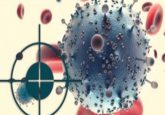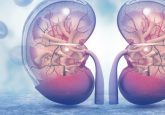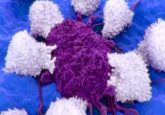Origins of childhood anaplastic large cell lymphoma identified
Researchers at the Medical University of Vienna (MedUni Vienna; Austria) and the University of Cambridge (UK) have for the first time successfully identified the origins of anaplastic large cell lymphoma (ALCL) – a very aggressive blood cancer that mainly affects children and young adults. Their findings were reported recently in the journal Nature Communications.
ALCL treatment currently consists mainly of intensive chemotherapy, with the possibility of severe long-term side effects such as secondary cancer, infertility and heart disease; indeed, as many as 40 % of children who receive an ALCL diagnosis suffer a relapse, requiring further chemotherapy.
“The origins of ALCL could be traced to a gene disorder in the development of blood-producing stem cells, which are located in the thymus,” commented Lukas Kenner for the Clinical Institute of Pathology at MedUni Vienna.
It is thought that conventional chemotherapy destroys the cancer cells that spread through the body, but does not destroy the original ‘cancer stem cells’ that produced the tumor. As Kenner explains: “This allows them to sow the seeds of a future relapse, which often occurs after the apparently successful completion of treatment.”
The study reports that a change in T-cell receptors (TCRs) is necessary for the spread of lymphomas through the body. In those mice in which ALCL had spread, the TCR had been lost from the surface of the cancer cells, which according to Kenner suggests “that the TCR molecule has a strong suppressive effect on tumor development.”
“We now have a better understanding of the origin of this type of lymphoma and the crucial role played by the major changes to the immune system in the spread of this tumour through the body. With this knowledge, we can better combat the cancer genes which are key to the formation and development of lymphomas, and in the future develop new treatments which offer a better possibility of finding a long-term cure,” commented study director Suzanne Turner (Department of Pathology, University of Cambridge, UK).
“Current chemotherapy is particularly exhausting for children and adolescents, especially if a relapse occurs and additional treatment is needed. Our new findings about this lymphoma enable the development of more efficient and less toxic medicines, with which every child will soon be able to return to a normal life after treatment,” stated Kenner.




